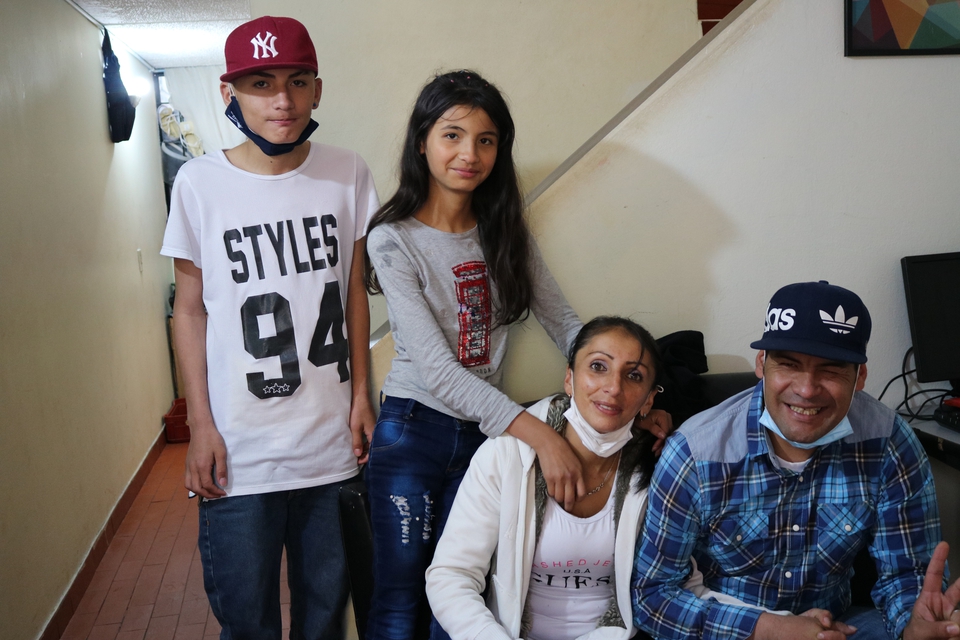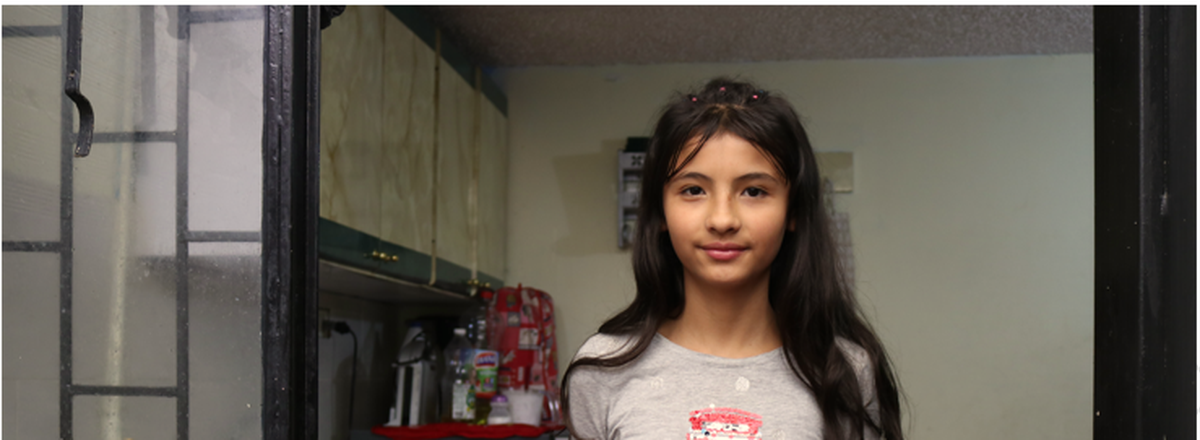In 2019, when María was 11, she was taken into the care of the Michín Foundation, along with her sisters Martha (14), Vanessa (15), and brother Juan (12). Their dad Rodrigo, who was caring for the children on his own while their mum spent time in prison, had a stroke on the way to work and had to stay in hospital.
María’s sisters and brother were so unhappy in the institution that they ran away, meaning the siblings were also separated from each other. But just over a year later, in 2020, we helped reunite the family.
“When I was at the institute, I used to miss my mother and my father,” says María. “I missed being with them and doing stuff with them. Now that we’re together, we can spend more time together and I don't feel sad anymore.”
“What I like the most about living with my parents is that we’re all together as a family and we can spend time together. My mum is very good to me, she loves me. She loves us equally. And so does my dad.”
"My children are the best, the most beautiful thing that God ever gave me.”

María's dad Rodrigo has permanent health problems following his stroke and is unlikely to ever be able to return to work. We helped the family with emergency financial support and are now helping Rodrigo to apply for a disability pension. And, now María’s mum Ana has returned home, we’re also supporting her to find work to support the family.
“I would describe my wife as a nice person,” says Rodrigo. “She’s an excellent person, dedicated to her children. And my children are the best, the most beautiful thing that God ever gave me.”
We’re also helping Ana to support María and her siblings with their school work.
“María’s a very smart girl and very active. She absorbs like a sponge,” Ana says.
“My family is the most important thing to me. My children and my husband. I love them a lot and I'm very happy to have them back after a long time. Being with them, spending time with them, watching a movie, or just gathering together with a hot chocolate and a piece of bread, that makes us happy.”
“What I want is to be able to provide them with a roof, where no one can tell us to leave if we don’t pay the rent. I would like to say to my family: ‘this is your house’. That would be my biggest dream, the day that God would help me with my own house. And in the short term, to find a job, so I can help my family have a better life.”
María and her siblings are happy to be back with their parents and are learning to work together to overcome their problems.
“Professor Javi and Professor Mónica [from the Michín Foundation] have helped us to be respectful to each other, ”María explains. “They ask us how we’re coming along as a family. I like to skate, and my favorite subject at school is informatics. I dream of helping in prison - helping the women with their kids, so they can see each other often.”
Mónica from the Michín team says: “With this family, the mother has always been willing to evolve. She’s a diligent person. With time Rodrigo’s health has been improving, and he has also overcome some episodes of depression and financial crises. This makes this family stand out because they have really grown, rising like a phoenix.”
Brief project and country background
As part of our mission to end the institutionalisation of children in Colombia, we’ve been working with our partners at the Michín Foundation in Bogotá, to demonstrate how to support family reunification by transitioning away from an institutional care model to providing support for children within family settings.
By working with young people and their families through home visits – and, due to COVID-19, remote support – in areas like positive parenting skills, education and extra-curricular activities, in 2020 we helped reintegrate 125 boys and girls with their families. Through the project we were also able to offer emergency financial and practical support to families affected during the pandemic.
Names have been changed in this case study.



